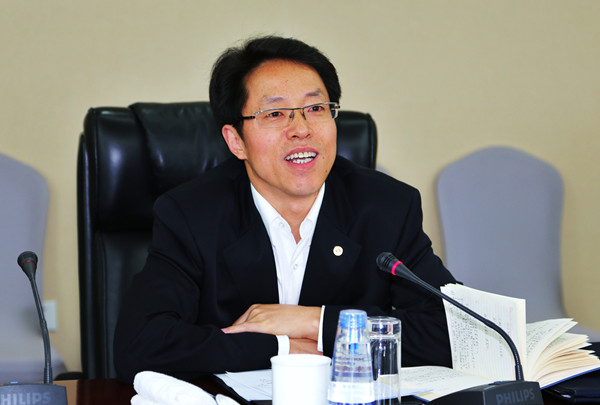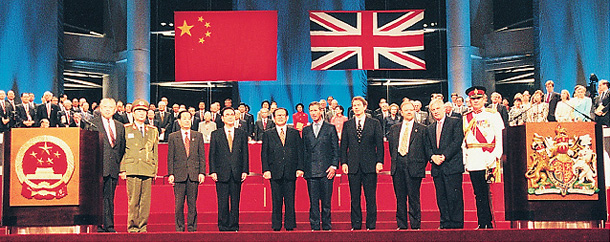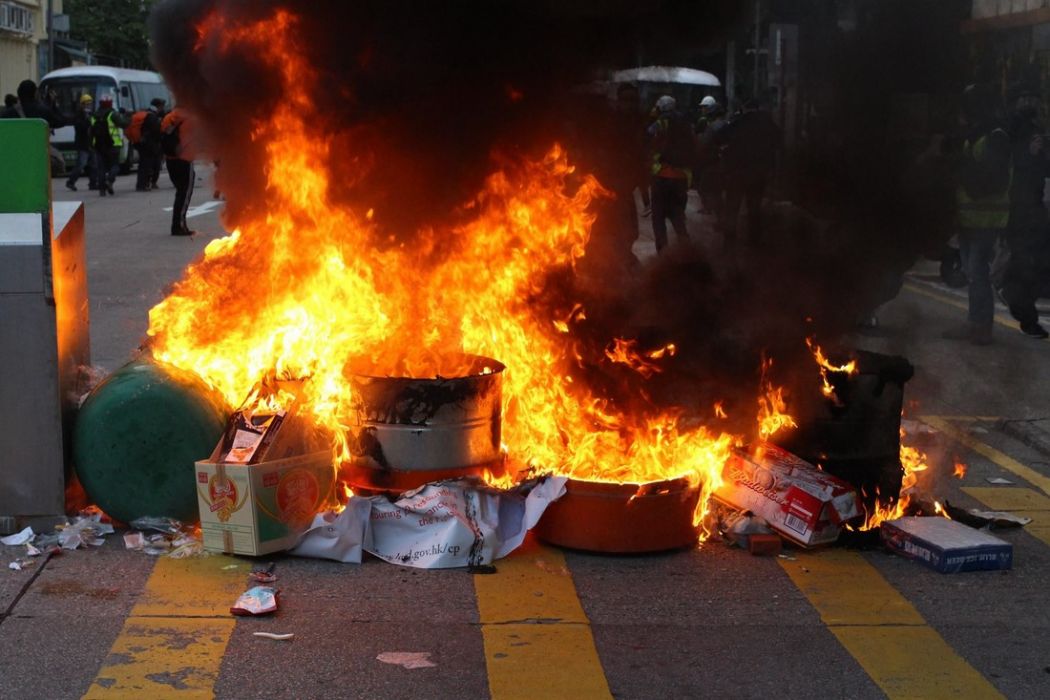Hong Kong, meet your sister region, Tibet. The “radical separatists” responsible for the violence in Mong Kok a fortnight ago have elevated you to that status of alarm in the words of Beijing’s top man in the city, Zhang Xiaoming.
Hong Kong, meet another restive sister, Xinjiang. The protesters’ inclination “towards terrorism”—again, according to Zhang—places you in this hair-raising category as well.

Indeed, in one fraught sentence, the director of the central government’s liaison office has transformed Hong Kong from the orderly finance and shopping hub it was as this month began into a hotbed of separatism and terror.
Two days earlier a foreign ministry spokesman had also used the S-word to describe the Mong Kok protesters.
And, just for good measure, a recent commentary in a newspaper published by the People’s Liberation Army repeated the characterisation in an article titled “Never Allow Any Powers to Bring Chaos to Hong Kong,” which went on to allege that the those responsible for the chaos and destruction this city witnessed on the first night of the Lunar New Year were colluding with “an anti-China overseas power.”
Here we have the beginnings of an orchestrated campaign to paint Hong Kong as a dangerous, potential break-away region of the People’s Republic of China.

As propaganda, however, this hapless effort is doomed to fail. Remarkably, 18 years after the handover that returned Hong Kong to Chinese sovereignty, Chinese officials still have not learned how to talk to the 7.2 million people who live here.
Hong Kong is nothing like the sprawling western regions of Tibet and Xinjiang, where two religions—Buddhism and Islam, respectively—are being squashed in the name of Communist Party conformity. We know that, and no verbal contortions of fact and circumstance are going to convince us otherwise.
It is not just traditional versus simplified Chinese characters and Cantonese versus Putonghua that create a linguistic divide between the people of Hong Kong and most of their compatriots on the mainland. Politically, too, Hong Kong and the mainland speak different languages.
Notice that not even Chief Executive Leung Chun-ying and the Beijing loyalists sitting in the Legislative Council—often dutifully quick to echo sentiments first expressed north of the border—have dared to pick up on the most recent cynical distortions of reality manufactured in Beijing.

They know that the people of Hong Kong are accustomed to swallowing a lot of tripe from Chinese officialdom in order to maintain peaceable relations, but the labels of separatism and terrorism are way out of line. Let’s not go there.
That granted, what happened in Mong Kok must be condemned as the offence to public order and civility that it was.
Yes, as many have pointed out, there are explanations for that fiery night of turbulence rooted in Hong Kong’s growing economic inequality and the sense of powerlessness felt by far too many of its people, especially the young. The profound disconnect between the government and the people should be the true source of alarm here.
Still, that does not mean we offer a free pass to those who engaged in a prolonged brick-and-glass assault on police. The perpetrators should be punished with the full force of the law.
To claim, however, that a small, ragtag band of violent localists represents a serious challenge to Hong Kong’s status as a Special Administrative Region of China is simply absurd.

Hong Kong Indigenous and other such misguided groups stand clearly on the fringes of Hong Kong society. Although they may have succeeded in ruining the first night of the Lunar New Year for the rest of us, they do not, by any stretch of the imagination, represent a genuine threat to China’s hold on Hong Kong.
But there is a real worry that, if they persist in their violent ways, Beijing will use their stupidity as a pretext to justify a more heavy-handed approach to security in the city. Ironically, the Mong Kok rioters could very well be playing right into the hands of their nemesis, the central government.
They’ve already inspired Zhang and Co. to start tossing around the S- and T-words and also prompted calls for the revival of Article 23, the proposed national security legislation that was shelved in 2003 after 500,000 people filled the streets in—Hong Kong Indigenous, Civic Passion and others please note—peaceful protest.

Lau Siu-kai—former head of the Central Policy Unit, Hong Kong’s official think tank, and a member of the Chinese People’s Political Consultative Conference whose every utterance provides a window into the thinking of the Chinese leadership—was quick to bring the Article 23 banner out of storage in the wake of the madness in Mong Kok.
There is nothing wrong with localism per se—if it means pride in your culture and heritage and a desire to protect and preserve the core values they represent. In that sense, let’s hope everyone in Hong Kong is a localist.
When localism turns hateful and violent, however, not only is it ugly and morally wrong; it is also counter-productive and, in the end, likely to make this great city less safe, less prosperous, less democratic and less free.
Make no mistake, there is an important battle being waged for Hong Kong’s future, but if it is fought in the streets with bamboo, bricks and glass, we all lose.
Remember, 500,000 peaceful demonstrators were required to knock Article 23 off the discussion table; a violent mob of a few hundred has put it right back on.
